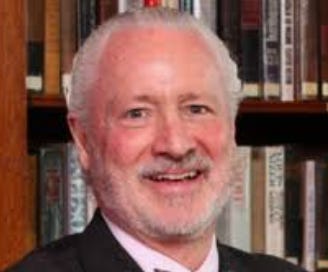My First Accounting Job: Jim Peterson
Our contributor Jim Peterson is an honorary accountant.
What is your current job?
I am an American lawyer whose practice focuses on financial and accountancy related issues.
While continuing my work with the profession, particularly as counsel to the Forum of Firms, I returned to journalism, my original career intention, with a column in the business section of the International Herald Tribune (RIP), later with my blog, Re: Balance, and my two books: Count Down: The Past, Present and Uncertain Future of the Big Four Accounting Firms (Emerald Books, 2d ed. 2017) and DOA: Can Big Audit Survive the UK Regulators (Amazon 2019).
The focus of my practice and my writing has been on the profession’s litigation and disputes, law enforcement and regulation, practice quality and risk management issues.
Did you major in accounting or come to it later? To CPA exam or not to CPA exam?
I was introduced to the accounting profession in 1973 as a first-year litigation associate in a Wall Street law firm. I moved to Chicago in 1982 as a member of the newly organized in-house legal group of Arthur Andersen, where I was a worldwide partner until my retirement in 2001, when I established a solo practice.
It was not in my career plan to be an accountants’ lawyer. I was an English major in college, with aspirations in journalism and no training, exposure or qualification in accountancy. My education and training have been on the job and in the field.
What was your first job using accounting skills and education? How did you get it?
I was bag-carrying for my firm’s senior litigation partner at a deposition when he was called urgently to the offices of Haskins & Sells, as it was then branded. “Come on along – this will be interesting. You’re going to be working all night anyway.”
A whistleblower was charging that Deloitte’s audit client, Equity Funding, was a Ponzi scheme. A criminal enterprise was exposed within days that gave rise to SEC enforcement, multiple grand jury proceedings and indictments, and major shareholder class litigation.
There has been a theme over my career trajectory – nine years of courtroom defense for several of the then Big Eight; 19 years in Andersen’s in-house legal group, the last years as an expatriate in Paris as the firm’s senior lawyer in Europe; and now in my solo practice and related writing. In all phases it has been my charge not only to address the underlying concern, but to pursue its causes and identify possible reactions: “what happened here, and why; what might be done, and by whom, to prevent or mitigate a recurrence?”
The challenge and satisfaction of pursuing those important questions are basic in my respect for the profession and my support for those considering their career choices.
What advice do you have for people considering majoring in accounting, considering whether to take the CPA exam, and considering how to use accounting education and skills?
History’s message is that information recording, reporting and assurance are central functions in organized societies based on commerce and trade.
What will those look like, in a rapidly evolving world? It has been my privilege over more than fifty years to work with, learn from and advise the outstanding professionals who have been my clients, colleagues, partners and friends – whose successors will confront broad and fascinating developments in the scope and structure of the profession of the future.
Although when compared with the landscape I happened into by serendipity, five decades ago, those goals and prospects will look very different going forward. But the goals are every bit as worthy, and the prospects just as bright.
© Francine McKenna, The Digging Company LLC, 2025



